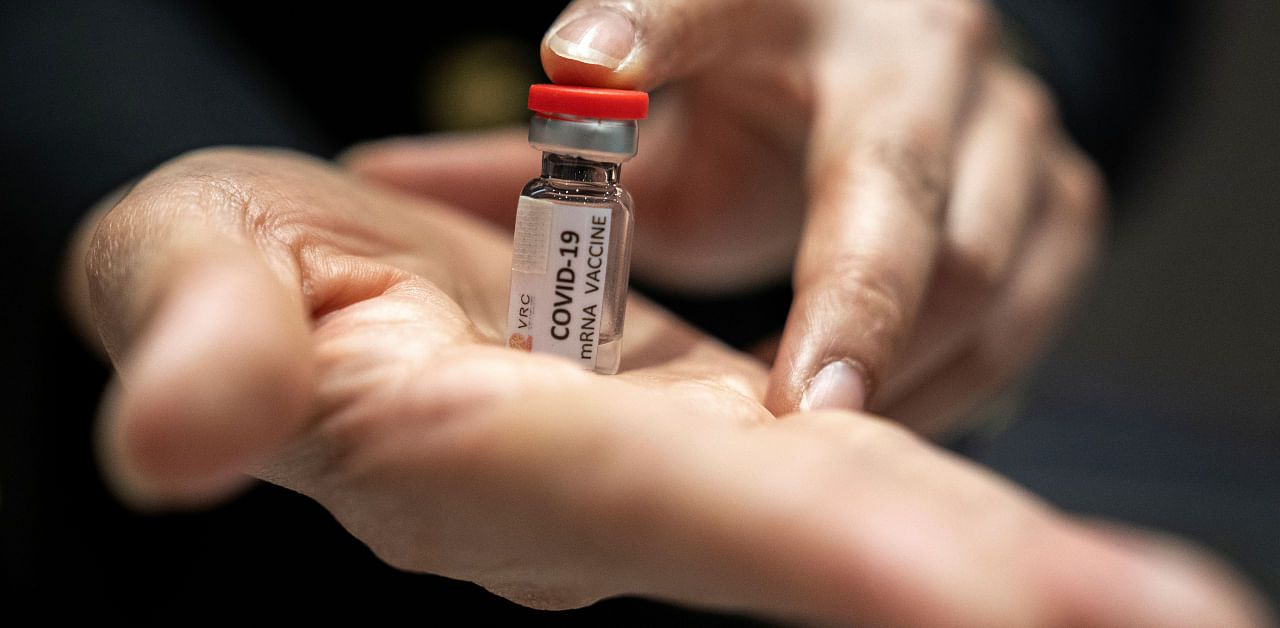
By Riley Griffin
Pharmaceutical companies are starting to unveil medical advances in the battle against the coronavirus, in what one CEO described as “an incredible feat of science over a disease.” Over the next few weeks, we're likely to learn a lot more about how well these vaccines and treatments work.
In a one-two-pandemic-punch on Nov. 9, Pfizer Inc. and BioNTech SE reported that their vaccine was highly effective in preventing symptomatic cases of Covid-19, while Eli Lilly & Co.’s treatment for those at early stages was granted a green light from US regulators.
While the optimism helped offset reports of the virus’s resurgence around the globe, questions remain about the safety, efficacy and durability of emerging vaccines and treatments, as well as who they help most. And as drugmakers prepare to receive emergency-use authorizations from the U.S. Food and Drug Administration and other regulators around the world, they’re also tackling manufacturing-related hurdles, continuing to negotiate supply deals with governments, and determining how to get product out of their facilities and into hospitals, clinics, pharmacies and out-patient facilities like nursing homes.
There’s a lot of fast-breaking developments to keep track of, so here’s what you need to know heading into the coming weeks.
What do Pfizer and BioNTech still need to do before approaching regulators?
The two companies reported the early analysis in a press release, not a peer-reviewed medical journal. That means more complete data is needed to showcase how well the two-dose vaccine regimen works in the elderly and other vulnerable groups. The analysis also didn’t include any severe cases of Covid-19, which is necessary to show how well it works at preventing against the deadliest form of the disease.
In order to approach US regulators for an emergency-use authorization, Pfizer and BioNTech must also report safety data. The companies anticipate they will have accumulated the FDA-requested two months of safety data for people in the trial by this coming week. If there are no unforeseen problems, the New York-based drug giant and its German partner could apply for the authorization soon after that, potentially even this month.
What happens after the companies have filed for an emergency authorization in the U.S.?
Then come the authorities. US regulators and outside experts will assess the data and hold a hearing intended to increase public confidence. (This is key because only half of U.S. adults say they’re likely to get a Covid-19 vaccine). And, if an approval is finally granted, more outside experts convened by the Centers for Disease Control and Prevention will weigh in to decide who should get the vaccine first.
Health and Human Services Secretary Alex Azar said this past week that distribution in U.S. could start in increments of 20 million doses per month as soon as late November. And while the shots will be “pre-positioned” at locations across the country in anticipation of a clearance, health experts don’t expect a vaccination campaign to kick-start until December or early January. And in the interim, health departments must overcome one significant hurdle: The shots must be stored at -94°F, a temperature normal freezers can’t handle.
What other vaccine-makers could soon follow with data of their own?
Like Pfizer and BioNTech, Moderna Inc. is working on a vaccine that uses so-called messenger RNA. That it uses the same technology bodes well for Moderna, which is only slightly behind its peers. A recent explosion of cases in the U.S. is helping speed along the biotech’s late-stage clinical trial. It has accumulated more than 53 infections, which means that an independent monitoring committee will conduct a preliminary analysis of the shot’s effectiveness within days. Top infectious-disease specialists, including Anthony Fauci, expect it to be as successful as Pfizer’s shot in preventing symptomatic infections.
Meanwhile, AstraZeneca Plc and the University of Oxford are expected to report preliminary data from their advanced trials in the coming weeks. Their vaccine is already under accelerated review in the UK and European Union, with hope that it could be available for large-scale deployment by year-end.
Johnson & Johnson is further behind. So far, it has enrolled only a few thousand participants in its 60,000-person trial. That’s in part because it lost two weeks when recruitment was paused over a safety concern. Though the trial resumed in late October, J&J now expects to have an initial readout of results from the trial early next year, rather than by the end of 2020. It is turning to data experts at UnitedHealth Group Inc. to accelerate the recruitment
Novavax Inc. is preparing to launch a large, late-stage U.S. trial before the end of the month, while Sanofi and partner GlaxoSmithKline Plc, two of the world’s biggest vaccine makers, and German drugmaker CureVac NV, are all looking to start advanced trials of their candidates by year-end.
What’s next for antibody therapies like Eli Lilly’s?
Lilly’s emergency-use authorization widens access to a new tool for tackling the virus in high-risk patients before they’re sick enough to require hospitalization. This class of monoclonal antibody therapies, as well as antivirals, are needed so that people can get treated early on, thus sparing health-systems from overcrowding, Fauci said on Thursday.
Lilly Chief Executive Officer David Ricks told Bloomberg the greatest challenge ahead is going to be meeting a surge in demand with limited supply. “We’re going to run out,” he said.
Another drugmaker, Regeneron Pharmaceuticals Inc., is nearing the finish line—and could bolster supply. The Tarrytown, New York-based drug company was thrust into the spotlight when President Donald Trump received its experimental antibody cocktail in early October when he was sick with the virus. Within days, Regeneron could learn from U.S. regulators whether its therapy has been granted an authorization.